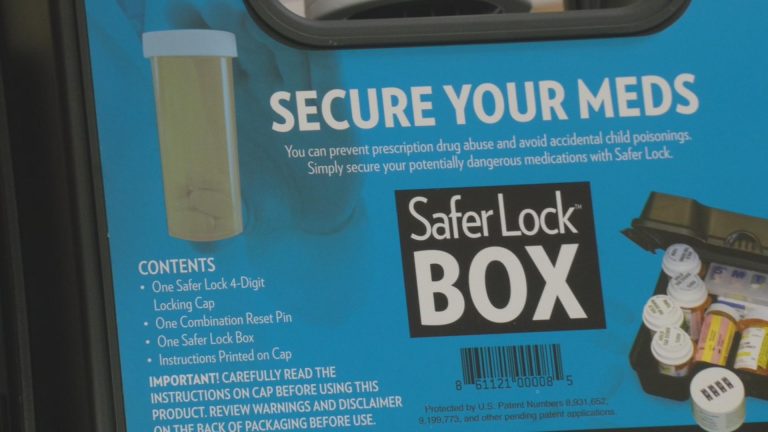
Antidepressant Anxiety: The Human Toll of Misinformation | Image Source: www.psychiatrictimes.com
LOUISSILLE, Kentucky, March 25, 2025 – In the midst of the growing national review of antidepressants and other psychotropic drugs, a growing wave of regression is emerging in both patients and mental health professionals. Distributed by a controversial decree of former President Donald Trump, Make America Healthy Again (MAHA) The Commission, led by Robert F. Kennedy Jr., conducted a debate on the safety, efficacy and social impact of selective serotonin reuptake inhibitors (SSRIs) and similar drugs. However, for thousands of Americans, especially in places like Kentucky, these drugs are not a threat, they are a lifeline.
In accordance with Executive Decree 14212, the commission is responsible for evaluating the “treatment” of SSRI, antipsychotics, mood stabilizers, stimulants and weight loss drugs. This movement provoked strong reactions from the medical community and experienced people. For them, the discussion is not only political, it is deeply personal.
Who are the people behind the batteries?
Tom Streeter, a Kentucky resident, remembers the time when the depression almost ended his life. In the 1990s, overwhelmed by the burden of untreated mental illnesses, suicide was envisaged. It was the reference of a friend and the introduction of Zoloft – a SSRI – that is credited with saving him. Now 61, Streeter remains in medicine three decades later, describing her as the constant thread that keeps him rooted through the top and bottom of life.
Streeter is far from alone. Others, such as Matt Milligan of Versailles and Lindsay Futs of Louisville, have similar stories, each finding something similar to normal thanks to antidepressants. ”I look forward to everything that is happening politically right now,” said Futs, who used SSRis to deal with postnatal depression. “And I have anxiety, so it doesn’t help.”
These accounts are not isolated. They reflect a larger population for which SSRI is not experimental interventions, they are medically monitored treatments with decades of history. As Kentucky Lantern said, most of the patients interviewed expressed frustration and fear for rhetoric that calls into question the legitimacy of their medical treatment. They don’t defend a brand, they defend the right to feel good.
What are SSRIs and how do they work?
SSRIs are commonly prescribed to treat moderate to severe depression, as well as anxiety and obsessive-compulsive disorder. According to Hannah Johnson, Associate Professor at the University of Kentucky College of Pharmacy, drugs work by blocking the serotonin reuptake carrier, allowing more serotonin to linger in the brain synapse. This helps regulate mood more effectively, stabilizing high and low emotions.
“It’s like letting the emotional tide calm down, rather than hitting the waves,” Johnson said. Dr. Fareesh Kanga, professor of psychiatry at the University of Kentucky, likes to repair a fugitive tap in the brain serotonin system, increasing flow and pressure to a stable level.
Yet bad ideas persist. One of the most common myths is that SSRI is addictive. “It’s simply biologically incorrect,” said Louisville psychologist Brighid Kleinman. “RSSIs do not cause desire or compulsive behaviour such as heroin or cocaine. If the symptoms come back after stopping, it is the disease that resurfaces, not withdrawal.”
Why do people compare antidepressants to heroin?
The controversy intensified after comments by Robert F. Kennedy Jr., who suggested that SSRI might be more difficult to abandon than heroin. These statements, the experts say, have no scientific basis. Unlike opioids, SRIs do not cause physical dependence or euphoria. Instead, sudden cessation can result in so-called “retirement syndrome”: temporary symptoms such as dizziness, irritability or flu-like effects.
“It’s embarrassing, of course,” said Dr. Kanga. “But it’s not addiction. With an appropriate tape under medical supervision, most people leave the SSRI without complications.” However, the stigma created by such statements can be harmful. According to Kentucky Lantern, patients like Streeter find these comments not only misleading but offensive. ”No matter what your program is, it has nothing to do with the well-being of anyone,” he said. “I’m not going to listen to a guy who had literal brain worms telling me what should happen in my head.”
Are there any real risks to the SSRI?
Like any medical treatment, SSRI is not without risk. Side effects may include nausea, sleep disorders or sexual dysfunction. And in rare cases, especially in younger populations, there is a low risk of increasing suicidal thoughts. This led to the FDA 2004 warning for patients under 25 years of age, a precaution that still appears on the drug labels today.
However, as Johnson pointed out, this risk is often misunderstood. The warning was based on data showing a smaller increase in suicidal ideas, not completed suicides, in youth taking SSRIs compared to placebo. Importantly, untreated depression is a significant risk of suicide, much higher than the side effect in question.
“With close control and support, antidepressants can be used safely,” said Dr. Caitlin Briggs, a psychiatrist at Kentucky University. “And when combined with therapy, they become a powerful tool for long-term recovery.”
Enough?
Experts agree that SSRI is most effective when used in combination with psychotherapy. “Mediating helps people get out of the emotional edge,” said Louisville psychologist Katie McBride. “The therapy teaches them how to make it.”
However, a shortage of therapists across the country means that many patients start with drugs alone. For severely depressed people, the energy or emotional capacity to participate in treatment may not exist without pharmacological assistance.
“It’s like learning to swim while they drown,” said McBride. “The medicine brings them to the surface. Therapy helps them learn to float.”
What does the medical community say?
In response to Executive Decree 14212, six major psychiatric organizations, including the American Association of Psychiatry and the American Academy of Child and Adolescent Psychiatry, issued a joint statement on 21 March in which they reaffirmed the safety and effectiveness of psychotropic drugs. According to the statement, these drugs have been studied for decades through randomized clinical trials, data recording and FDA surveillance.
Dr. Joseph Goldberg, president of the American Society of Clinical Psychopharmacology, noted in an interview with Psychiatric Times, “Mental illnesses are the main causes of disability and suffering. Modern treatments help prevent suicide, restore functioning and reduce the personal and social burden of these conditions
The statement further stated that efforts to stigmatize or reduce access to these drugs could have “dangerous consequences” – particularly for young people and people with severe mental illness. It is not only about misinformation, but also about its negative effects: policy changes, reduced funding and patient fear.
How does that affect Kentucky?
In Kentucky, where access to mental health care is already limited in rural areas, these discussions are particularly shocking. Patients and physicians are concerned that the politicization of antidepressants will endanger both availability and confidence.
“My patients are terrified,” said Kleinman. “They are afraid that their medication will be taken away, that the only thing that keeps them functional will disappear at night.”
Even among those who do not trust ISRI themselves, such as the Rob Mattheu of Louisville, the tone of the national conversation feels hostile. “If you do not feel that they are good for you, then do not take them. But don’t underestimate the fact that they helped other people,” he said.
The Kentucky General Assembly is also taking steps to form a working group to study how to implement MAHA principles in the State. Although the details remain scarce, mental health professionals expect science to be the main force, not sensationalism.
What about antidepressants in America?
Despite the decline, the future of SSRI and other psychotropic drugs remains uncertain. Does the policy tend to restrict or will clinical evidence prevail? What is clear is that people’s lives are closely linked to the outcome of these decisions.
Depression is not about politics. It doesn’t stop during society’s debates. And for many, drugs like Zoloft or Prozac are not optional, they are the reason why they are still alive. As the doctor wisely said at the University of Louisville-Mallakh: “You can argue that hammers cause broken inches. Should we remove the hammers? That’s not true. We need to use this tool more effectively.”
Ultimately, the experts’ call is not to deny the risks, but to weigh them against the greatest risk of untreated mental illness. These medications may not be perfect, but when they are administered carefully and properly monitored, they save lives. And in the words of those who trust them, they return colour in a world that once felt hopeless.






